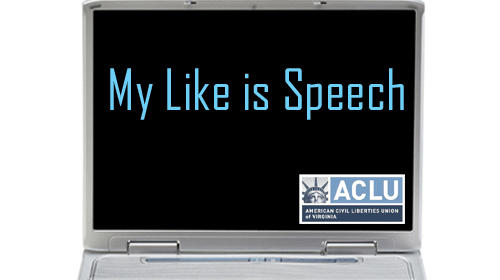
A federal appeals court today issued an important decision that reaffirms everyone’s right to speak freely on the Internet. The three-judge panel of the Fourth Circuit Court of Appeals found unanimously that, as we argued in our friend-of-the-court-brief last year, "liking" something on Facebook is undoubtedly constitutionally protected speech. (Facebook also filed its own friend-of-the-court brief supporting that position.) As the ہد°ؤأإ؟ھ½±½ل¹û’s Ben Wizner said:
This ruling rightly recognizes that the First Amendment protects free speech regardless of the venue, whether a sentiment is expressed in the physical world or online. The Constitution doesn’t distinguish between â€کliking’ a candidate on Facebook and supporting him in a town meeting or public rally.
In this case, employees of a Virginia sheriff who was running for reelection were fired for "liking" the sheriff’s opponent’s webpage on Facebook and taking other actions to indicate their support for the opponent. The district court judge ruled last year that pressing a button does not involve "enough speech" and that "liking" something is not a sufficiently "substantive statement" to warrant First Amendment protection. Fortunately, the appeals court rejected this argument, finding that “liking†a page is both pure speech expressing support as well as symbolic expression via the "universally understood 'thumbs up' symbol."
That a user may use a single mouse click to produce that message that he likes the page instead of typing the same message with several individual key strokes is of no constitutional significance. … In sum liking a political candidate’s campaign page communicates the user’s approval of the candidate and supports the campaign by associating the user with it. In this way, it is the Internet equivalent of displaying a political sign in one’s front yard, which the Supreme Court has held is substantive speech.
As the Internet rapidly changes the way that we communicate and exchange ideas, the First Amendment safeguards our right to speak freely regardless of which new platform we might be using.
Learn more about freedom of expression: Sign up for breaking news alerts, , and .


